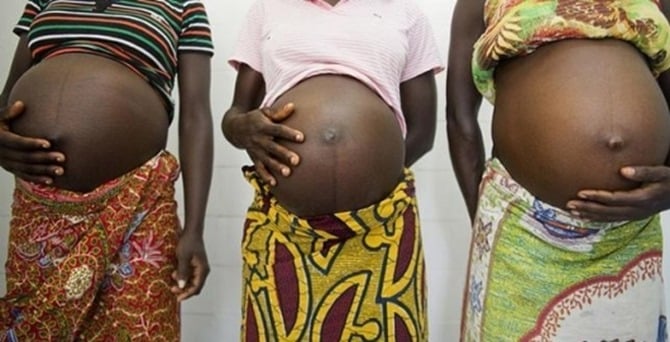The Bono Region of Ghana is grappling with a concerning rise in teenage pregnancies and abortions. From 2021 to 2024, a staggering 14,877 teenage pregnancies were recorded, accompanied by 1,188 abortions among girls aged 15 to 19. This alarming trend underscores the urgent need for comprehensive interventions to address the underlying issues contributing to this public health challenge. The data reveals a consistent pattern of high numbers throughout the period, with 3,999 pregnancies and 388 abortions in 2021, 4,058 pregnancies and 351 abortions in 2022, 3,492 pregnancies and 217 abortions in 2023, and 3,328 pregnancies and 282 abortions in 2024. These figures paint a stark picture of the vulnerabilities faced by young girls in the region and the potential long-term consequences for their health, education, and overall well-being.
Health officials have identified several contributing factors to the high rates of teenage pregnancies and abortions. Myths and misconceptions surrounding family planning, coupled with a lack of community support, create barriers for young girls seeking access to reproductive health services. Furthermore, deeply ingrained cultural and religious beliefs often obstruct open discussions about sexuality and reproductive health, further hindering access to essential services. These factors contribute to a climate of misinformation and stigma, leaving many young girls without the knowledge and resources to make informed decisions about their sexual and reproductive health.
To combat this troubling trend, health officials are advocating for increased access to family planning services and comprehensive sexual education for teenage girls. Family planning empowers girls to make informed choices about their bodies and futures, enabling them to delay pregnancy until they are ready and equipped to handle the responsibilities of parenthood. By providing access to contraceptives and accurate information about reproductive health, girls can continue their education and pursue their aspirations without the added burden of unintended pregnancies.
The Bono Regional Directorate of Health has reported a slight improvement in family planning coverage, reaching 39.58% of women and girls of reproductive age in 2024, compared to 36.45% in 2023. This increase, though marginal, signals a positive step towards improving access to these crucial services. The acceptor rate for family planning services also saw a slight increase of 0.08% in 2024. This modest improvement is attributed to collaborative efforts between partners, improved commodity supply, and the re-registration of long-acting reversible contraceptive methods (LARCs). The provision of free family planning commodities by organizations like Marie Stopes, DKT, and the Planned Parenthood Association of Ghana (PPAG) has also played a significant role in enhancing access to these services.
Stakeholders emphasize the crucial role of family planning in empowering women and girls to make informed decisions about their reproductive health. By enabling them to plan their families and space their pregnancies, family planning contributes to healthier pregnancies and reduced maternal mortality. Advocates are calling for intensified awareness campaigns and targeted interventions to address the barriers hindering access to family planning services. These efforts aim to create a supportive environment where young women can access the information and resources they need to make informed choices about their sexual and reproductive health.
In an effort to address the broader issue of child health, the Bono Regional Directorate of Health convened a stakeholders’ meeting to raise awareness about the importance of immunization and the comprehensive range of child health services available. The meeting aimed to strengthen collaboration among government agencies, development partners, community leaders, health professionals, and the media. This multi-sectoral approach underscores the need for a coordinated effort to improve child health outcomes. The meeting coincided with the African Vaccination Week (AVW) and the Child Health Promotion Week (CHPW), both of which aim to promote the importance of preventative healthcare for children. The AVW, established by the WHO in 2010, highlights the life-saving impact of immunization, while the CHPW, introduced by the Ministry of Health in 2004, focuses on nutrition, immunization, and preventative care for children under five. These initiatives underscore the ongoing commitment to improving child health and well-being in the region.














